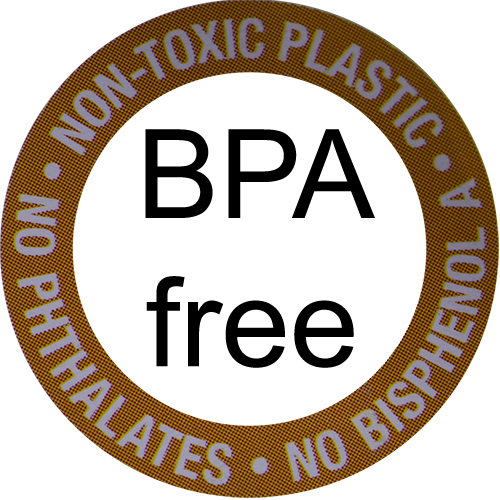 Not too long ago I wrote an article about the GMO debate which is still landing Whole Foods smack dab in the middle of the controversy. I want to make one thing clear, in no way am I intending to slander Whole Foods. On the contrary, I admittedly continue to shop there because I believe they are providing a place where I can typically find most of the top quality foods that I am looking for. However, as with all large corporations, there are pros and cons to their business practices.
Not too long ago I wrote an article about the GMO debate which is still landing Whole Foods smack dab in the middle of the controversy. I want to make one thing clear, in no way am I intending to slander Whole Foods. On the contrary, I admittedly continue to shop there because I believe they are providing a place where I can typically find most of the top quality foods that I am looking for. However, as with all large corporations, there are pros and cons to their business practices.
I recently stopped in to my local Whole Foods (aka Capers) to pick up a can of coconut milk (full fat, of course!). In the past, my wife and I would purchase Thai Kitchen brand coconut milk until, that is, the controversial chemical BPA (Bisphenol A) began surfacing in the media bringing much awareness to this dangerous toxin. Bisphenol A is an industrial chemical from which plastic resins, epoxies and other products are made. Many food and drink containers, like water bottles, baby bottles and the linings for canned goods use BPA. It’s also found in cash register receipts, electronics and hundreds of other household items.
So what’s the big deal? BPA is a known endocrine disruptor and may be very harmful to our reproductive and nervous systems. Some studies are suggesting that BPA could be linked to reproductive issues, infertility and even cancers. What I find even more disturbing is that 91% of Canadians have a detectable amount of BPA in their bodies.
Because toxins are stored exceptionally well in fats, coconut milk is one of the worst offenders with respect to the concentration of BPA. Hopefully you can begin to understand why it was an easy decision to begin avoiding BPA where ever possible. Fortunately, Whole Foods carries a brand of coconut milk called Native Forest, which uses BPA-free cans. It may cost a bit more, but the extra expense is worth it for my health and that of my wife.
On this particular day, I walked into Whole Foods and grabbed a can of Native Forest coconut milk. As I did so, my attention was drawn to another brand which I had noticed growing in popularity within Whole Foods. The brand is Whole Foods own, 365. Based on the price, I had some doubts that the product could possibly be in a BPA-free can. But I was willing to inquire with management on the off-chance that Whole Foods was beginning to jump on the BPA-free train. To my astonishment, I was told that the 365 brand is completely BPA-free! Eureka! I’d found an organic coconut milk in a BPA-free can at nearly half the price of the competition… or so I thought.
Upon returning home, I still had a little voice in my head telling me to do some more digging. I hadn’t been in front of my computer for more than 3 minutes when I found a plethora of articles and blog posts confirming my suspicions. Whole Foods even openly admits on their website that the 365 brand is not BPA-free, but they do acknowledge that they are in the process of transitioning in that direction.
With obvious frustration and fury of the danger I had just been led into, I called the store from which I had just come. The ensuing phone call was significantly different than the conversation I had earlier at the store. This time I got a different manager who was very apologetic. In fact, his tone was down-right fearful. I think he knew the seriousness of what had just happened and he was making any offer to resolve the issue. As the conversation carried on, I was amazed to hear that while Whole Foods was transitioning to BPA-free cans, they currently claim that 21% of the 365 line is already BPA-free. However, I was then told that due to production processes, they were unable to determine which products are included in this 21%. I couldn’t believe my ears! Even though 21% of the 365 line is BPA-free, there is no way to conclusively tell which products are in the BPA-free cans. Sounds a bit like a game of Russian Roulette to me.
Fortunately for Whole Foods I am not looking to reap any benefit from this careless mishap. I do believe that consumers have a responsibility to know what they are putting inside their bodies. So instead of attacking Whole Foods for what happened, I want to share my experience to encourage others to do their research. If you see something on the shelf at the supermarket that seems too good to be true, look into it more before accepting the first response you’re given.
With that in mind, Whole Foods also holds a responsibility to ensure their staff are adequately trained and educated to provide consumers with accurate information of the products in their stores. Had the manager on duty simply been honest with me and indicated that he did not know the answer to my question, I would have been satisfied with his response and willingness to find out for me.
I mentioned at the beginning of this article that I still shop at Whole Foods, and I will likely continue to do so. I simply want to stress to everyone that even the most health-oriented establishments often have shortcomings that we, the consumers, must continue to question. It is a direct result of our inquiries, demands and spending that dictates change. Rather than boycotting companies like Whole Foods, let’s provide them with useful feedback so positive change can occur.
What would you ask Whole Foods to change in their store?

